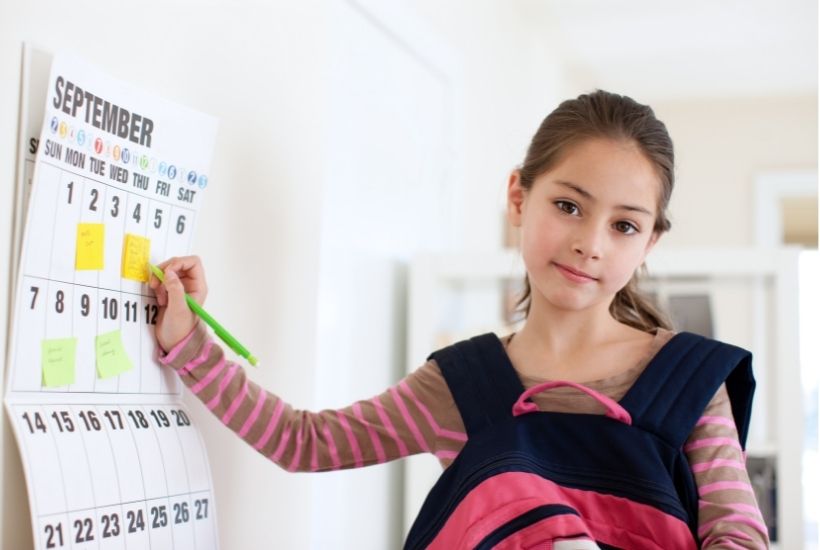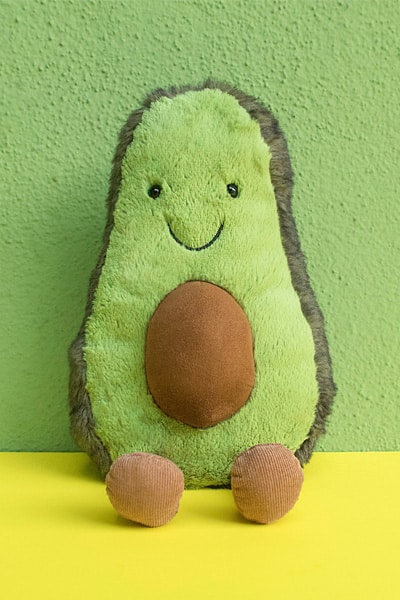How Parents Can Help their Forgetful children
Forgetful children can be frustrating for parents and caregivers. It seems like they can’t remember anything! What’s going on in their heads? Why do they forget so much?
As it turns out, forgetfulness is often related to working memory. This part of the brain helps us remember information for a short period.
This blog post will discuss the science behind working memory and how positive parenting can help forgetful kids remember more!

What is working memory?
Working memory is the part of the brain that helps us remember information for a short period of time. It’s a part of a person’s executive functions, a set of cognitive abilities that help us plan, organize, and complete tasks.
Forgetfulness in kids is often related to working memory because it’s the part of the brain responsible for holding onto information long enough to use it.
For forgetful kids, working memory can be a real challenge!
There are two main types of working memory: verbal and visual.
Verbal working memory is when we remember information using words, while visual working memory is when we remember information using pictures.
Why are some kids forgetful?
There are a few reasons why forgetful children might have trouble with working memory.
One reason is that they might have a difficult time paying attention to the information they need to remember in the first place.
Another reason is that they might have difficulty processing and retaining the information.
Finally, forgetful kids might also have trouble retrieving the information from their working memory when needed.
Forgetful kids often have trouble with one or more of these steps in the process.
What causes trouble with working memory?
There are a few different things that can cause trouble with working memory.
Anxiety
Anxiety happens when we feel nervous or worried about something. It’s a normal emotion, but it can be overwhelming for some people.
For example, when forgetful children are anxious, it can be hard to focus on the task at hand and remember what they need to do.
Stress
Stress is when we feel like we’re under too much pressure. It can be caused by things like school, family, or friends.
Forgetful kids might find it challenging to focus on the job at hand and recall what they need to accomplish when they are anxious.
Sleep deprivation
Sleep is when our bodies rest and heal. The child must get enough sleep every night. When we don’t get enough sleep, our bodies and brains don’t have enough time to rest and rejuvenate.
Forgetful kids might find it challenging to focus and remember things when tired.
Developmental and Intellectual disabilities
Some forgetful kids have trouble with working memory because of a developmental or intellectual disability. These can include conditions like ADHD, dyslexia, and autism.
If your child has a developmental or intellectual disability, it’s essential to talk to their doctor about ways to help them with their forgetfulness.
Symptoms of forgetfulness
There are a few different symptoms that forgetful kids might experience.
- They might have trouble paying attention to the task at hand.
- They might forget what they were supposed to do.
- They might have difficulty completing tasks.
- Need reminders to do simple tasks
When to seek professional help?
If your forgetful child is experiencing any of the following symptoms, it might be a good idea to seek professional help.
- Your child is not meeting developmental milestones
- Your child’s forgetfulness is interfering with their daily life
- Your child is experiencing anxiety or stress related to their forgetfulness
- your child might have a developmental or intellectual disability
A professional can help determine if your forgetful child’s forgetfulness is normal or if there might be an underlying cause. They can also provide you with strategies to help your forgetful child.
How can parents help forgetful kids?
There are a few things that parents can do to help forgetful children.
Create Flow Charts
Flow charts are a great way to help forgetful kids remember the steps they need to take to complete a task.
Flow charts provide a visual representation of the steps involved in a task, which can be helpful for kids that have trouble with verbal working memory.
You can create flow charts together as a family for things like getting ready for school in the morning or doing homework at night.
Create Habits
Habits are routines that we do automatically without having to think about them. Creating habits can be a great way to help them remember the things they need to do.
When something becomes a habit, it’s easier to remember because we don’t have to think about it. You can help your forgetful child create habits by coming up with a routine together and practicing it until it becomes second nature.
Use Mnemonic Devices
Mnemonic devices are tools that can help us remember information. There are a few different types of mnemonic devices, but one type that can be particularly helpful for forgetful children is called the keyword method.
To use the keyword method, you pair a keyword with the information you want to remember. For example, if you wanted to remember the order of the planets in our solar system, you could pair each planet with a keyword that starts with the same letter as the planet.
So, for Mercury, you might use the keyword “Many,” and for Venus, you might use the keyword “Volcanoes,” and so on.
Provide a quiet place to work
Forgetful kids might find it challenging to focus and pay attention when there is a lot of noise and activity around them. Providing a quiet place for your forgetful child to work can help them concentrate and remember what they’re doing.
Encourage physical activity
There is some evidence that physical activity can help improve working memory. So, if your forgetful child is having trouble remembering things, Encouraging them to be physically active might help.
Be patient
Forgetfulness is a common childhood issue that can be frustrating for kids and parents. It’s important to be patient with your forgetful child and understand that they are not doing it on purpose.
Break tasks into smaller steps
For forgetful kids, big tasks can be overwhelming and difficult to remember. Breaking a task into smaller steps can help make it more manageable and easier to remember.
For example, if your forgetful child is having trouble remembering to brush their teeth at night, you can break the task down into smaller steps like getting undressed, going to the bathroom, and then brushing their teeth.
Allow extra time to complete tasks.
Forgetful kids might need more time than other kids to complete a task.
Allowing extra time can help reduce frustration and increase the chances that your forgetful child will be able to remember what they’re doing.
Use visual cues
Visual cues are another great way to help kids remember what they need to do.
Visual cues can be anything that will remind your child of the task they need to do, like a picture of a toothbrush next to the sink or a note that says “Brush your teeth” on the bathroom mirror.
Set a daily or weekly schedule
Creating a daily or weekly schedule can also be helpful for forgetful kids. Having a schedule can help kids know what to expect and remind them of what they need to do.
You can create a daily or weekly schedule together and post it somewhere where your child will see it, like on the fridge or on their bedroom door.
Help your child make a list of what they need to do.
Making a list of what they need to do can be helpful for forgetful kids. This can be a written list or even just a mental checklist.
Going through the list with your child can help them remember what they need to do and help you make sure that they didn’t forget anything.
Encourage your child to use a planner.
Using a planner can also be helpful. A planner can help kids track what they need to do and when they need to do it. You can help your child by teaching them how to use their planner and by reminding them to check it daily.
Make it a Game
Learning can be more fun for children when it’s turned into a game. There are a few different ways to do this. One way is to create memory games where you hide objects around the house and see if your child can remember where they’re hidden.
You can also make up songs or rhymes to help your child retain information. For example, you could write a song about the planets in our solar system to help your child remember their order.
Help them take breaks.
If your forgetful child is having trouble concentrating, encourage them to take breaks.
Taking a few minutes to move around or do something else can help refresh their mind and make it easier for them to focus when they’re ready to start again.
Provide positive reinforcement
Lastly, providing positive reinforcement can be a great way to help forgetful children. When forgetful kids do remember to do what they’re supposed to, it’s essential to give them praise and encouragement.
This will help them feel good about themselves and motivated to keep up the good work.
Positive reinforcement can take many different forms, but some examples include verbal praise, hugs, high-fives, and stickers.
You can also use a rewards system where your child earns points or stickers for completing tasks and redeem them for prizes.
To sum things up
You can help your forgetful kid by breaking tasks down into smaller steps, using visual cues, setting a daily or weekly schedule, making it a game, and providing positive reinforcement.
These techniques can help forgetful children remember what they need to do and make it easier for them to focus on their tasks.
If you have a forgetful child, try some of these techniques and see how they work for your family.
Don’t forget to subscribe to my blog for more great articles about parenting and child development! And be sure to follow us on social media for the latest updates!
Thanks for reading!







